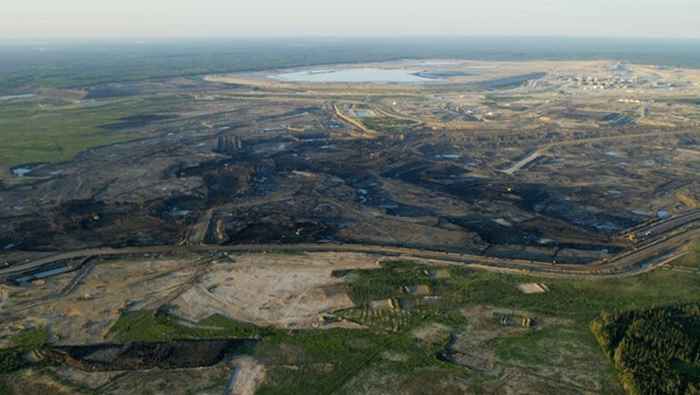Reaching into the Underlands of Extractive Capita
- Date
- 3 April 2024
- Time
- 14:00

“Unearthing architectures is a vital way to piece through the colonial Anthropocene by unveiling an urban model in ruins, one that is dependent upon death and destruction here and elsewhere […] [T]his decolonial critical method reaches into the underlands to see how extractive cultural industries are saturated with unjust wealth and cultural capital accumulation by a billionaire class”.
—Un-Earthing Architectures (2022)
The ties between the earth’s geologic material and social and cultural practices in our worlds have been shaped by the long arc of racial capitalism. But the question of how we might resist the plundering, exploitation, and enclosure of resource-rich territories elsewhere in the name of primitive accumulation of resources here has recently come under increasing scrutiny.
For Macarena Gómez-Barris, rethinking our connectivities to the plundered geologies under our feet and across oceans begins by imaginatively breaching the earth’s surface. Her important introduction of the ‘extractive zone’ (2017) registers the critical overlap between South American regions which don’t adhere to sovereign borders, but which are mapped for the ruinous effects of extraction they endure, and for the indigenous majority populations which inhabit them. At the same time, notions of un-earthing, subsoils, and submergence have been used to index the affective phenomenon of being under or inside the extraction zone and articulated in a concrete political and cultural register of un-earthing which parallels resource extraction.
In particular, the submerged perspective draws attention toward the embodied and vernacular experience of extractive capital which can only be understood in processual, corporeal, and local (or even ‘micro-’ ) ways. The point of this, Gómez-Barris explains, is to ‘seek out less perceivable worlds, life forms, and the organization of relations within them, while creating new methods that allow for this tracking’ (xv).
In this masterclass, we’ll focus on Gómez-Barris’ proposal of submergence as the analytic counterpart to extractive zones, and a critical decolonial method which speculates an available underneath to ruinous extraction. Together, we will begin to ask what it means to reach into the underlands of extractive zones, as an imaginative gesture which critically parallels and subverts resource extraction. Subsequently, as a community we’ll invite reflection toward contradictions closer to home: staying with the trouble of our embodied dis-positions as inhabitants and benefiters of institutions with lucrative financial ties to petroleum empires, weapons manufacturers, and apartheid—and as thinkers who seek to unearth or otherwise unsettle these uneasy connectivities.
Bio
Macarena Gómez-Barris is a writer and scholar with a focus on the decolonial environmental humanities, authoritarianism and extractivism, queer Latinx epistemes, media environments, racial ecologies, cultural theory, and artistic practice. She is author of four books including, The Extractive Zone: Social Ecologies and Decolonial Perspectives (Duke University Press, 2017) that examines five scenes of ruinous extractive capitalism. Beyond the Pink Tide: Art and Political Undercurrents in the Américas (UC Press 2018), a text of critical hope about the role of submerged art and solidarities in troubled times. She is also author of Where Memory Dwells: Culture and State Violence in Chile (2009), and co-editor with Herman Gray of Towards a Sociology of a Trace (2010). She is series editor with Diana Taylor of Dissident Acts at Duke University Press.
Reading and ECTS
– Gómez-Barris, M. (2017) The Extractive Zone: Social Ecologies and Decolonial Perspectives. Durham: Duke University Press.
*Required for ECTS:
Introduction (“Submerged Perspectives”)
Chapter 5 (“Decolonial Gestures: Anarcho-Feminist Indigenous Critique”).
– Gómez-Barris, M. (2023) “Un-Earthing Extractive Architectures”. [online]. e-flux.
To obtain ECTS, participants are required to read the above texts. Based on close engagement with this material, participants are asked to send a maximum of 3 discussion questions to the organizer (f.evans@uva.nl) ahead of the session. A selection of the questions received will be used to guide the discussion.
ECTS to be managed by Dr. Colin Sterling, Assistant Professor
How to register
Interested junior researchers (ReMA/ PhD) should send a brief bio and their interest in the topic (maximum 100 words) to f.evans@uva.nl by midnight on the 15th of March 2024.